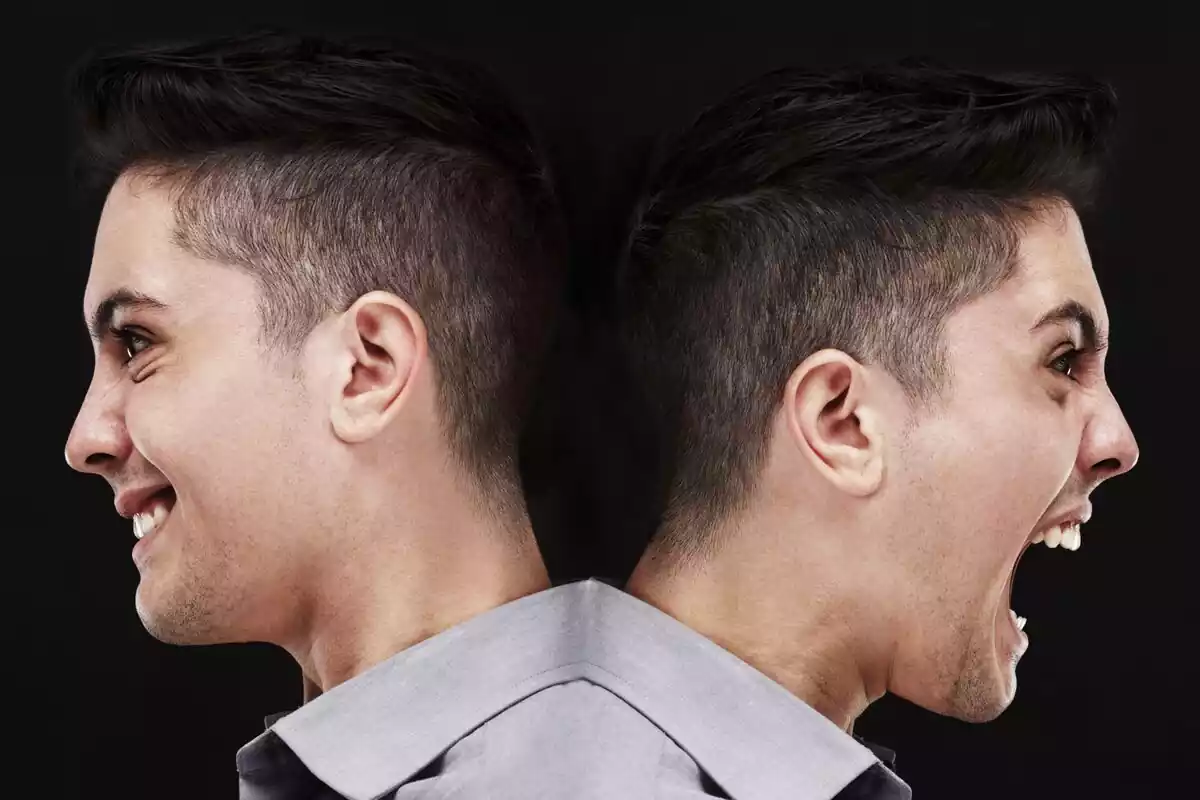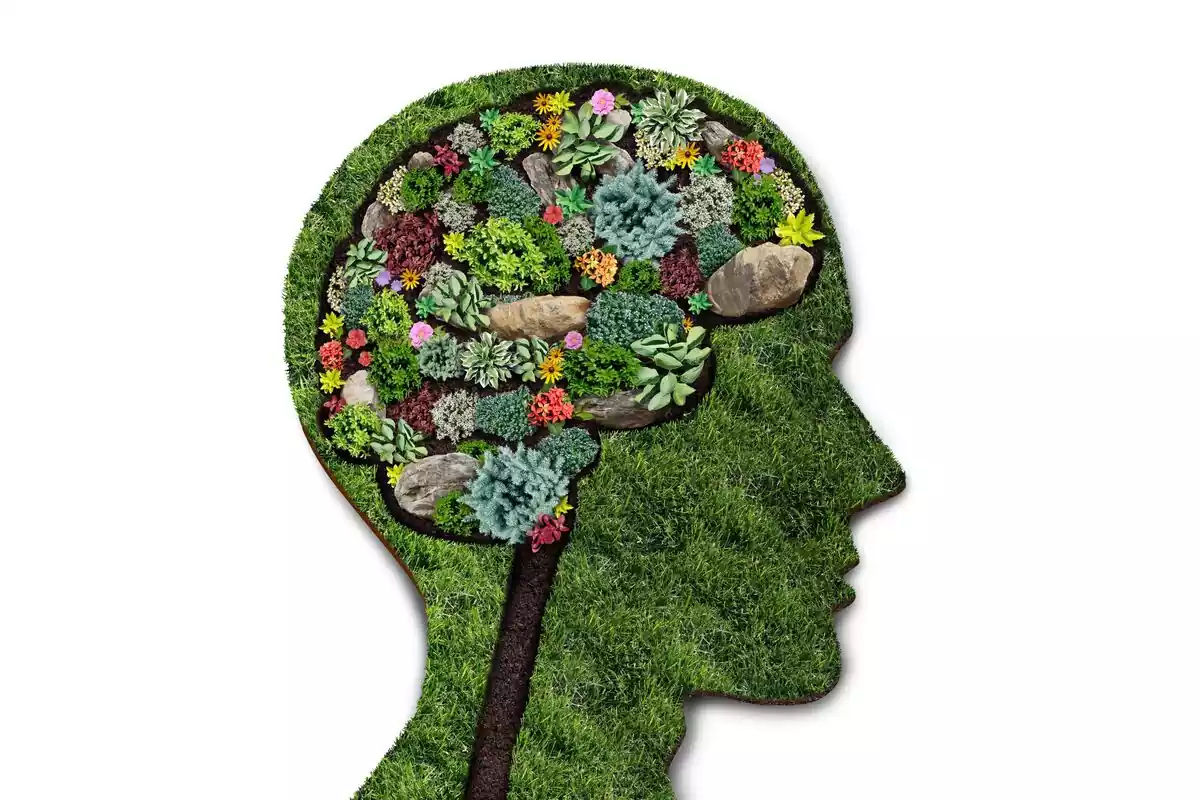The 9 Enneagram types continue to divide the experts: for some, it lacks methodology, and for others, it's considered an excellent tool for self-knowledge and personal development in the clinical psychology field.
Its origins are unknown, but we do know that this shape was reconfigured into a system that presents us with nine different interrelated personality types showing their strengths and weaknesses. The goal of this chart is to accept the power one's personality.
What are enneagram types?
The Enneagram is based on the description of nine personalities distributed around a shape, and these different types relate with one another via lines. This Eastern mystic system was rescued and remade by Western authors, and these days it's actually a popular tool.
According to this theory, nine different personality types interact with one another depending on each one's strengths or weaknesses. The key here is that not only does this allow us to discover our potential as far as our personality goes, but also it provides us with the tools we need to find out which enneagram types we're most and least compatible with.
Therefore, the enneagram is a tool with both psychological and social purposes, which uncovers strengths and the complexity of human relationships.
How does the enneagram test work?
In Greek, the enneagram means 'nine lines' and in geometry, a star with nine points. The nine personalities of the Enneagram are distributed symmetrically around this shape (like numbers on a clock), and they connect with straight lines, forming a star.
These nine personality types are separated into three groups: emotional, mental, and intuitive. First and foremost these define the way that this person faces their problems and the tools that the individual taking the personality test uses.
The theory behind this test is based on the belief that during our childhood we develop survival strategies, and that these become solidified when we are adults. This could become an obstacle when it comes to developing your personality.
By choosing to focus our attention on specific areas, we ignore others, strengthening some aspects and giving up on the others. In a way, what the enneagram does is detect these attention centers and then relates them to the ignored ones, to give us the ability to choose to get rid of the unconscious aspects of our personalities.
The enneagram test proposes 135 questions with five answer possibilities for each: 'hardly ever,' 'rarely,' 'somewhat true,' 'mostly true,' and 'very true.' The result brings you to your enneagram type.
The 9 Enneagram types
The Enneagram isn't strictly used to classify personality; it also allows one to gain self-knowledge and to work towards self-improvement: that's why your enneagram type is just a guideline, it marks behavioral tendencies, and proposes paths for growth.
Each Enneagram type combines two factors: the mind's feeling and the relationship with others. Each of these factors allows for three possible values, which means that there are nine possible combinations (3x3=9).

As far as relationships with others there are three groups (empathetic, apathetic, and mean) and for the mind's feeling, there's three more (superiority, equality, and inferiority).
Your personality will align with a number depending on the enneagram type that you belong to.
Enneagram type 1
Their mind divides things into good and bad. These are idealists with strong principles that try to put these into practice with their organized, meticulous, and perfectionist personalities. They can be angry and arrogant, and their positive values are nobility, wisdom, and insight.
Enneagram type 2
These individuals have generous personalities focused on the well-being of others. Since they are always looking out for others needs, they like to feel continuously needed, and this makes them proud. They have a hard time taking care of themselves and meeting their own needs, but in their purest state, these people are real altruists.
Enneagram type 3
Truly triumphant. Their self-confidence and security bring this personality type to succeed. They know how to adapt to any situation, they are capable and talented, ambitious, full of energy, and consistency. These people live to work and are highly competitive. These individuals tend to be vain: they need constant recognition from others.
Enneagram type 4
Individualistic and introspective, tend to shut in on themselves to feel safe and sound from everything that's out there. Has a fragile personality full of fears and insecurities, but at the same time is highly self-aware and committed to their reality. Emotional, romantic, and creative.
Enneagram type 5
A personality marked by intelligence and foresight. They have a detective's spirit -ready to investigate and track things down. They see the world from a logical and cerebral perspective, and they tend to do so independently. These individuals tend to be eccentric, nervous, and isolate themselves, but at the same time, they are cutting-edge pioneers.
Enneagram type 6
Those that fall into this category are committed yet caring, they are in the constant search for security, and they watch out for the well-being of others. They are faithful friends, but at the same time, they are held prisoner by their many fears.
There are two different variants of type 6, depending on how they face their fears.
Phobic sixes fold up into themselves when faced with danger. On the other hand, the counterphobic version reacts aggressively. The first type of 6 is adorable, modest, and submissive, while the second kind is hardened and defiant.
Enneagram type 7
This personality type likes to live life to the fullest, they have unbridled passion, and they want to make the most of their existence sensitively. These people are impulsive, and they start a lot of projects that they rarely finish: when they get sick of it, they give up. It's hard for them to be responsible and they run away from their problems.
Enneagram type 8
A value system governed by the division between strengths and weaknesses, and the feeling that bringing justice is their calling. They go through life presuming that they are superior, which they take to the extreme. They feel at home in the role of the protector and avenger, and they face problems with boldness and determination.
Enneagram type 9
Type 9 is humble and enjoys being comfortable, without any big ambitions or aspirations in life, they are held back by laziness and tranquility. They avoid conflict whenever possible and they have an optimistic view on life which leads them to downplay their problems. Their fairness helps them to unite people and act as peacemakers and mediators.
Questions and answers
Here are some common Enneagram questions:
- Generally, people think that I'm serious and sensible, and I find this to be true.
- My genuine interest in people leads me to get involved in their lives.
- I consider myself a highly competent person, being efficient and effective doesn't bother me.
- Many think that I'm an enigmatic, difficult, and contrary person.
- I like to dig deeper into matters, and I study the details carefully.
- I'm attracted to authority, but at the same time, I don't trust it.
- I love traveling and discovering new cultures, foods, and people.
- I'm independent, and I don't like to depend on anyone for my needs.
- People like that they can feel safe when they're by my side.
- I always try to be honest with myself and true to my conscience.
- Being friendly comes naturally to me, and I can strike up a conversation quickly.
- When things go well for me, my inner light shines through.
- I tend to obsess over my negative feelings before freeing myself of them.
- I am a reserved person; I don't let many people into my world.
- I'm highly emotional, but I don't tend to show my feelings.
- My schedule is usually full, and I like it that way.
- I think that you've got to go out and fight for what you believe in if you want to achieve something.
- As long as I'm at peace with myself, I don't care whether I'm alone or surrounded by people.
- Even though this might sound crazy, it doesn't form a part of my essence.
- I find that people react with happiness when I help them.
- I try to put my best face forward when I'm dealing with others.
- Even when I'm surrounded by friends, I usually feel lonely.
- I don't feel very important or powerful. I feel small and invisible.
- I'm afraid that everyone will criticize me if I make a mistake.
- I flee from comfort and caution; I'm all about drive and emotion.
- When I love someone, I think of them as my people, my family.
- I've found a kind of balance in my life, and I don't see any reason to change.
- I have a vague feeling like a judge lives inside of me.
- My feelings often seem distant to me.
- If I receive criticism, I tend to close in on myself.
- If others knew what I thought, they'd think that I was crazy.
- I feel more secure doing what's expected of me than working on my own.
- My mind never stops: I'm always thinking of ten things at once.
- If you have the correct information, you can make a rational decision.
- I can't stand boredom, and I try never to be bored.
These and other questions about principles, courage, generosity, appearance, honesty, temperament, and optimism, among other things, are the ones that you can find on the full enneagram test. Your responses will automatically be classified since each answer coincides with a specific enneagram.
This should lead you to your Enneagram type, from which you can begin to decipher your personality, working to improve areas where you may be lacking and maximizing your strengths.
- You might be interested in: The 12 Learning Styles That Exist According To Psychology

